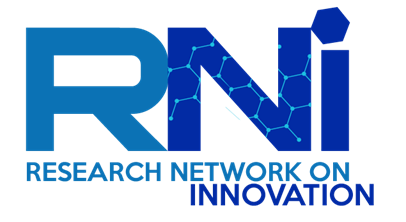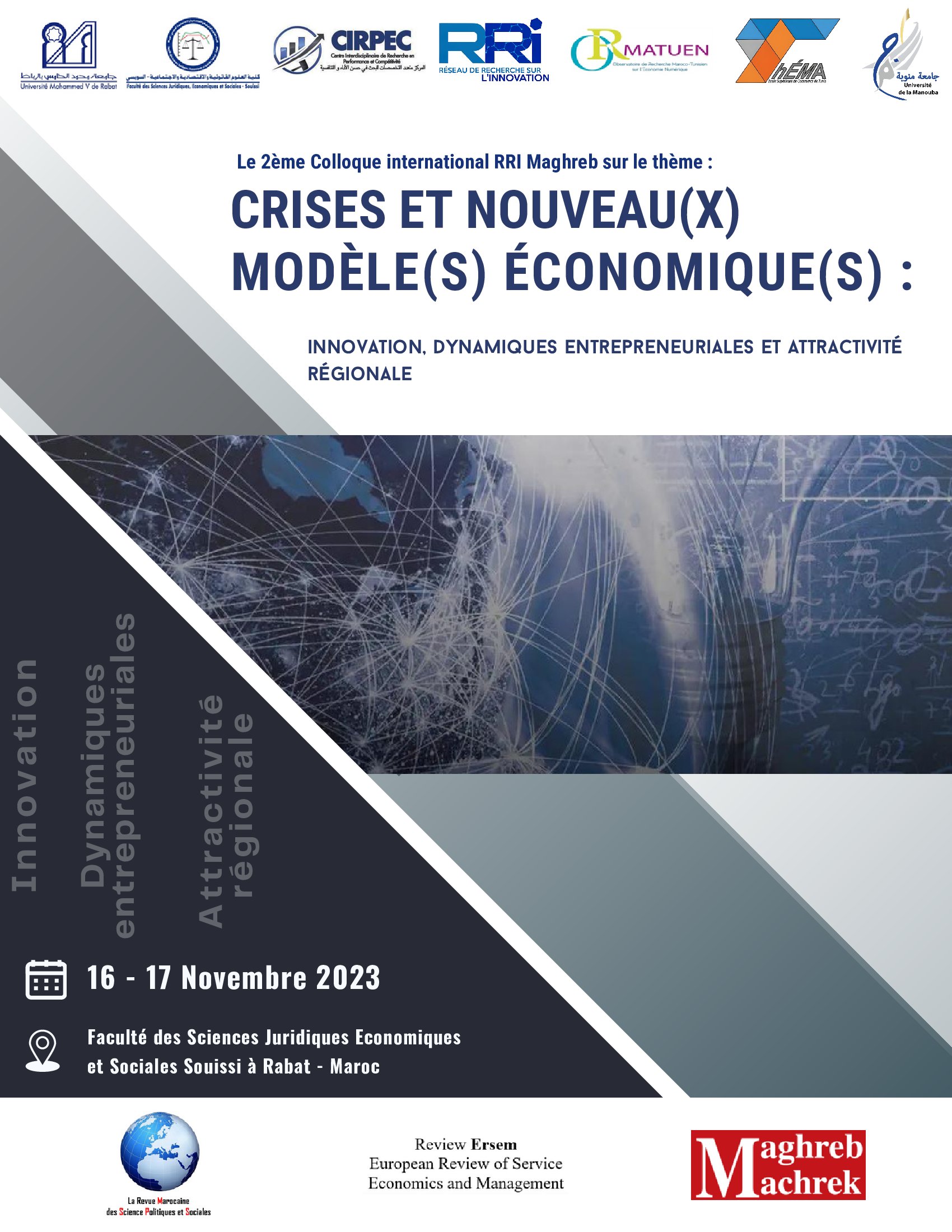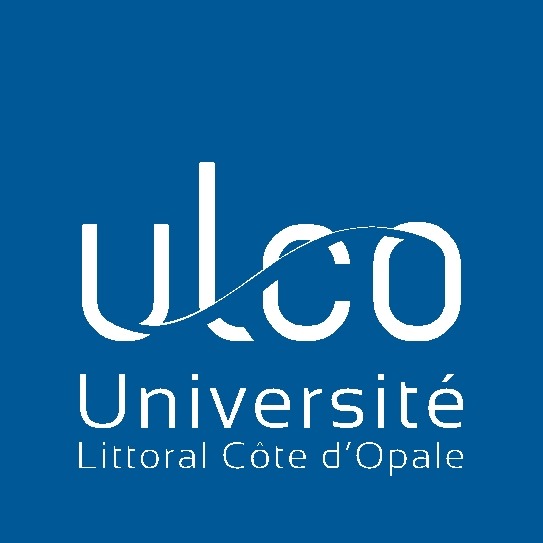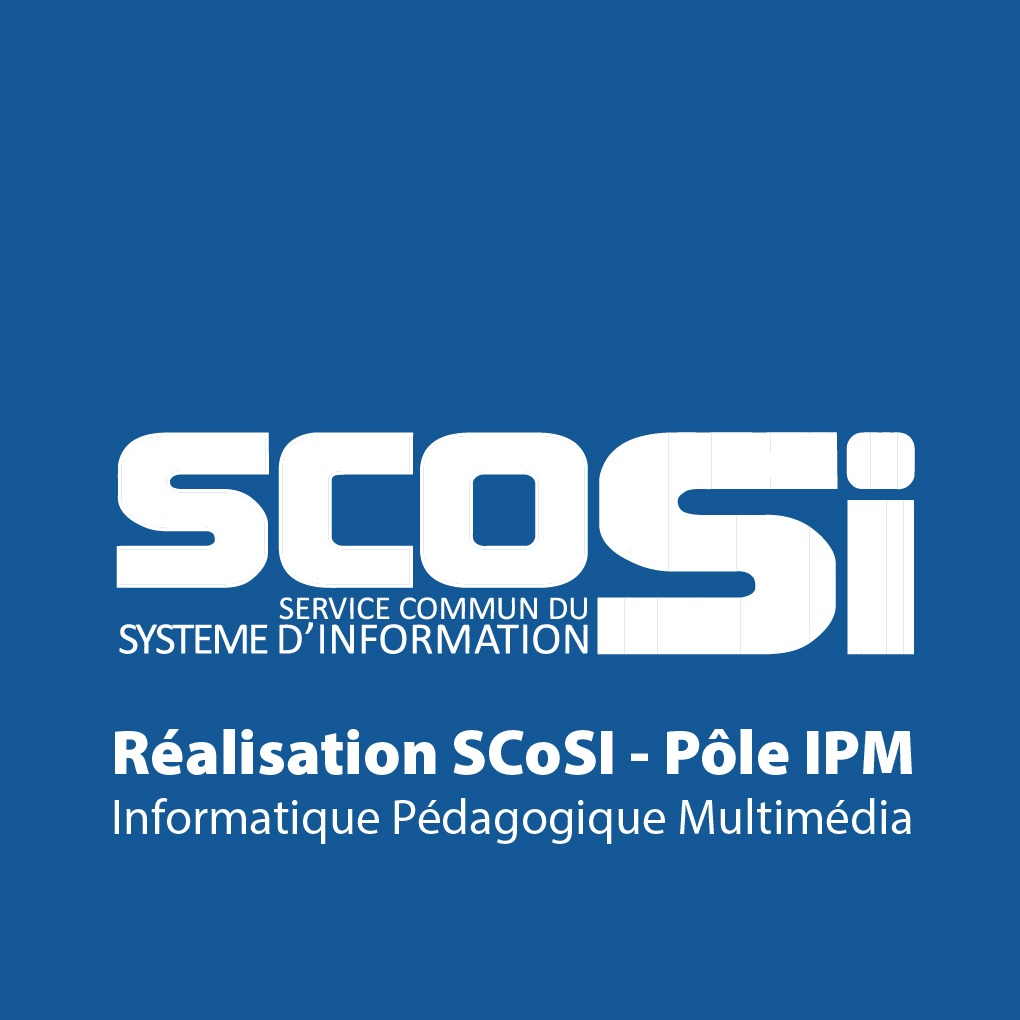2nd International Conference of RNI Maghreb
November 16-17, 2023 in Rabat- Morocco.
Faculté des Sciences Juridiques Economiques et Sociales (FSJES) Souissi in Rabat- Morocco
Call for papers for the international colloquium
Within the framework of interdisciplinary research in the social sciences, the “Centre Interdisciplinaire de Recherche en Performance et Compétitivité” (CIRPEC) of the Université Mohammed V de Rabat, the Laboratoire Thèma of the Université de la Manouba, and the Réseau de Recherche sur l’Innovation (RRI) are organizing:
The 2nd RRI Magherb International Colloquium on the theme:
Crises and new economic model(s): innovation, entrepreneurial dynamics and regional attractiveness
Authors of papers are invited to submit their original work related to (but not limited to) the following themes:
- Innovation policies;
- North-South relations and cooperation
- Crises and economic models;
- Energy, water, food, ecology and climate issues;
- Emergence of new sectors, new business models;
- Financial innovations and the ecological transition;
- Digitization and ecosystem sustainability;
- Economic inclusion, sustainability and the circular economy;
- Innovation and regional development.
Paper submission
Authors should submit contributions using the easychair online article submission platform by clicking on the link below:
https://easychair.org/conferences/?conf=rri2023
Contributions can be in English or French
- Receipt of full papers: September 17, 2023
- Response after Scientific Committee decision: October 05, 2023
- Return of final full texts: October 19, 2023
- Final response on full texts: October 23, 2023
- Conference dates November 16-17, 2023
Publication of papers
All papers accepted and presented at the conference will be published, after review by the reading committee, either in the RRI’s indexed academic journals, or in a special issue of the Revue Marocaine des Sciences Politiques et Sociales (RMSPS).
Partners




